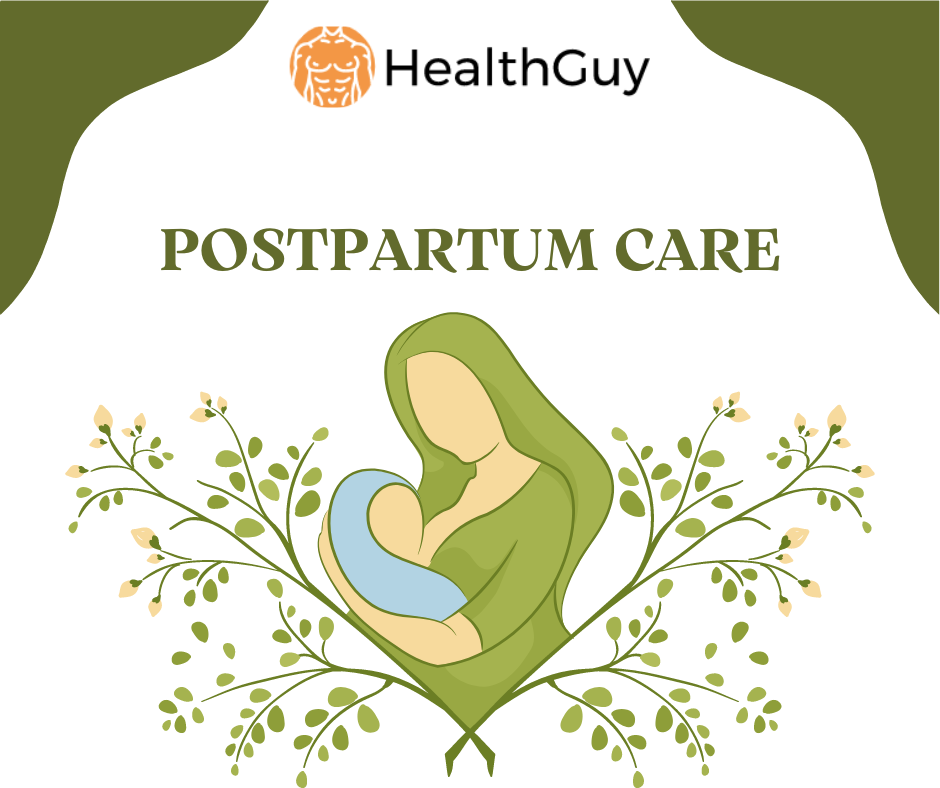
Postpartum Care: Essential Tips and Resources for a Smooth Recovery
Postpartum care is an important part of the postpartum period. It can be a time of great joy and celebration, but it’s also a time when you may need extra support from your healthcare provider and loved ones.
Postpartum care includes:
- Regular visits with your healthcare provider for checkups, including physical exams, lab tests and screenings (like Pap smears) as well as breastfeeding support or other services you may need.
- Helping you manage any pain or discomfort after delivery by offering medications such as ibuprofen or acetaminophen (Tylenol). You may also be given prescription pain relievers if needed. Your healthcare provider will decide how often these medications should be taken based on your symptoms and how well they work for you.
Physical Recovery
Physical recovery from childbirth can be a long and painful process. You may experience:
- Increased blood flow to your breasts, which can lead to engorgement if you don’t express milk regularly.
- Bleeding (lochia), which will continue for several weeks after delivery and is heaviest in the first few days after delivery.
- Swelling in your legs and feet due to fluid retention as well as swelling caused by damage done during labour or delivery that needs time for repair before it goes away completely; this can make walking difficult until it subsides completely–usually within six weeks after delivery if there were no complications during labour/delivery such as an episiotomy or tearing of the perineum (the area between vagina and anus).
Mental Health
Postpartum depression is a common mental health issue that many new mothers face. It can be hard to know whether you’re experiencing symptoms of postpartum depression or simply feeling overwhelmed by the changes in your life, but there are some signs to look out for.
If you have any of these symptoms, talk with your doctor about getting help:
- Feelings of sadness or anxiety that don’t go away.
- Loss of interest in activities you used to enjoy.
- Insomnia (difficulty sleeping) and/or trouble falling asleep at night.
- Feelings of hopelessness or guilt over things unrelated to your baby.
Breastfeeding
Breastfeeding is one of the best things you can do for your baby. It’s a natural way to feed your child and helps them develop healthy eating habits that will last a lifetime.
However, many new mothers have trouble breastfeeding their babies at first. following can make sure that’s on the right track:
- Make sure that both you and your baby are ready to breastfeed before trying it out. Your body needs time to adjust after giving birth, so don’t feel pressured into doing anything until both parties are ready!
- Talk with other moms who have already been through this process about how they overcame any obstacles they faced while breastfeeding their children–this will give both parties some good ideas going forward!
Nutrition and Diet
Postpartum nutrition is an important part of your recovery. It can help you feel better and heal faster, as well as prevent common problems like constipation, haemorrhoids, and depression.
Here are some tips:
- Eat three meals per day plus snacks if needed (snacks should be between 100-300 calories).
- Drink 8-10 glasses of water each day (more if you’re breastfeeding). If you have trouble remembering to drink enough water during the day, try setting an alarm on your phone or use mobile phone apps to remind yourself every hour or two!
Sleep
Sleep is a critical part of postpartum recovery. The average woman needs about 9-10 hours of sleep per night, but many new moms find it difficult to get even 7 hours. This can lead to fatigue and daytime drowsiness – both of which can interfere with breastfeeding and bonding with your caring for other children in the household.
It’s important to recognize the signs that you’re not getting enough rest:
- You feel tired all day long.
- Your mood changes frequently throughout the day (from happy to sad).
Exercise
- Exercise is the key to recovery, and it’s important to start as soon as possible.
- Many different types of exercise can be beneficial for postpartum women. Some examples include walking, swimming, yoga and pilates.
- The most important thing is to listen to your body during this time–if you feel like exercising one day but not another day that’s fine! Just remember that regular exercise will help speed up recovery time and make you feel better overall.
Self-Care
Self-care is an important part of the postpartum period. It’s crucial to identify what stressors are affecting your health and well-being, whether they’re external or internal. You can then set boundaries with others and practice self-care by taking time for yourself, getting enough sleep, eating nutritious foods and exercising regularly.
Support System
Having a strong support system is essential for new mothers. The postpartum period is a time when you will need help from others, especially if you have other children to care for. There are many types of support available:
- Family members and friends.
- Postpartum doulas (also known as birth companions) are specially trained in providing emotional and physical support during pregnancy, labour and delivery, and postpartum.
- Childbirth educators who teach about prenatal care; breastfeeding; infant safety; infant nutrition; diaper changing techniques; child development milestones through age 5 years old
Supporting yourself with these resources can help make your transition into parenthood easier for everyone involved!
Conclusion
You’re now familiar with the basics of postpartum care. You know what to expect, and you can feel confident about taking care of yourself and your baby.
If you have any questions or concerns about your health, please contact a medical professional immediately. If you have any questions or concerns about the health of your newborn child (or children), please contact a medical professional immediately as well!
